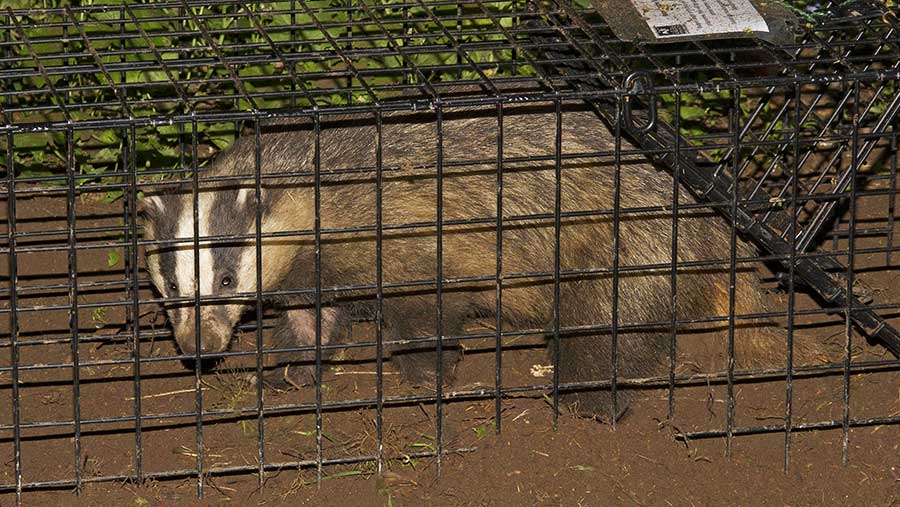Scientists question cull strategy to tackle bovine TB
 © FLPA/John Hawkins/REX/Shutterstock
© FLPA/John Hawkins/REX/Shutterstock Farm vets and scientists have voiced concern at the government’s badger culling policy to combat bovine tuberculosis in cattle.
The NFU insists that culling is helping to reduce TB outbreaks – and has welcomed a government announcement of 11 new badger control licences.
But scientists say it would be more effective to ramp up biosecurity rather than culling badgers, which they argue could make the situation worse.
See also: Badger culling extended to Cheshire and Wiltshire
Four prominent scientists released statements through the independent Science Media Centre after the government announced the new culls.
‘No benefit so far’
Professor Lord John Krebs said the government’s own analysis of pilot badger culls in Gloucestershire and Somerset showed no benefit so far in reducing TB in cattle.
He added: “The Welsh Policy of no culling but stronger biosecurity is working, and the Irish government has said it will stop culling as it is not sustainable.
“Yet the English government is persisting with its pointless and misguided policy.”
Tim Coulson, professor of zoology at Oxford University, said bovine TB was a serious problem for dairy farmers and solving it should be a priority for the government.
Prof Coulson said: “It is not clear to me why the government believes this, as it is contrary to scientific understanding.”
For culling to contribute to the eradication of bovine TB, Prof Coulson said the badger population needed to be reduced by at least 70%.
Humane delivery
“Trial culls revealed that the humane delivery of this target was unachievable,” he added.
“What is more pernicious is that a reduction of less than 70% can hasten the spread of the disease, which really does not help our dairy farmers.”
The British Veterinary Association said it supported culling – but called for the government to abandon its current method of shooting free-running badgers.
President Gudrun Ravetz said: “We will continue to call on the government to use the targeted and humane method of cage trapping and shooting only.”
Ms Ravetz said the BVA was also concerned that the government had moved away from intensive culling within a short time frame as a means of securing optimum disease control. “Yet we are concerned that government policy seems to have moved away from the original, evidence-based proposal of a six-week time limit for badger control within the open season.”
Call for clarity
The BVA has called for government clarity over cull time frames, numbers and mid-cull review methodology to ensure that any progress made from culling is not undermined.
The government has defended its culling policy – saying it is part of a clear plan which includes biosecurity and vaccination to eradicate the disease over the next 20 years.
Farm minister George Eustice said: “Bovine TB not only has a devastating impact on our beef and dairy farms, but causes harm and distress to infected cattle.”
Farmers faced the reality of bovine TB every day, added Mr Eustice.
This was why the government was also launching a bovine TB Advisory Service to offer advice to all farmers on limiting on-farm disease risk.
